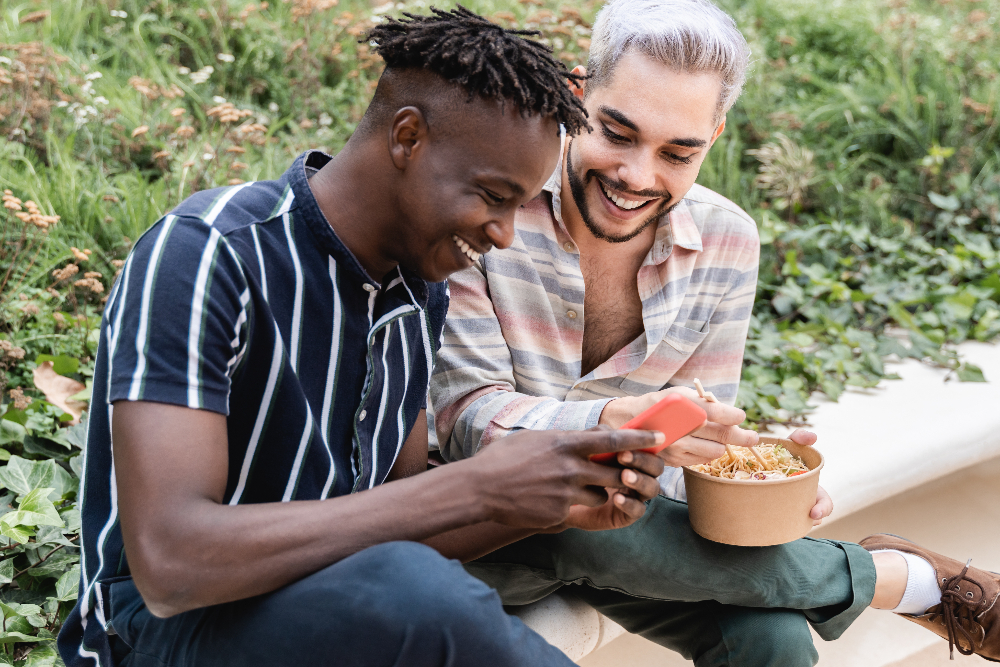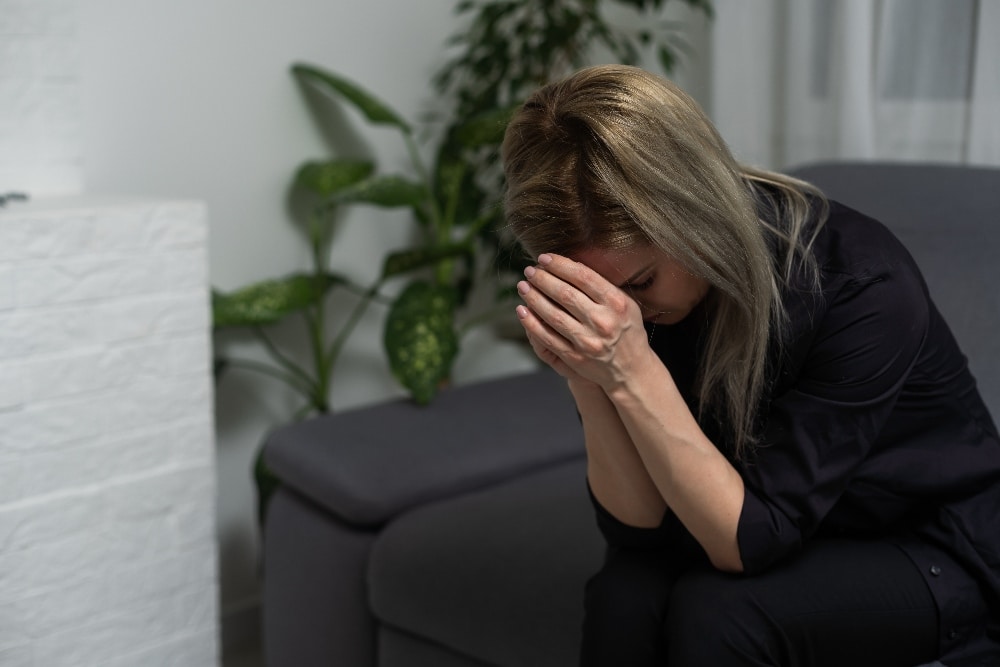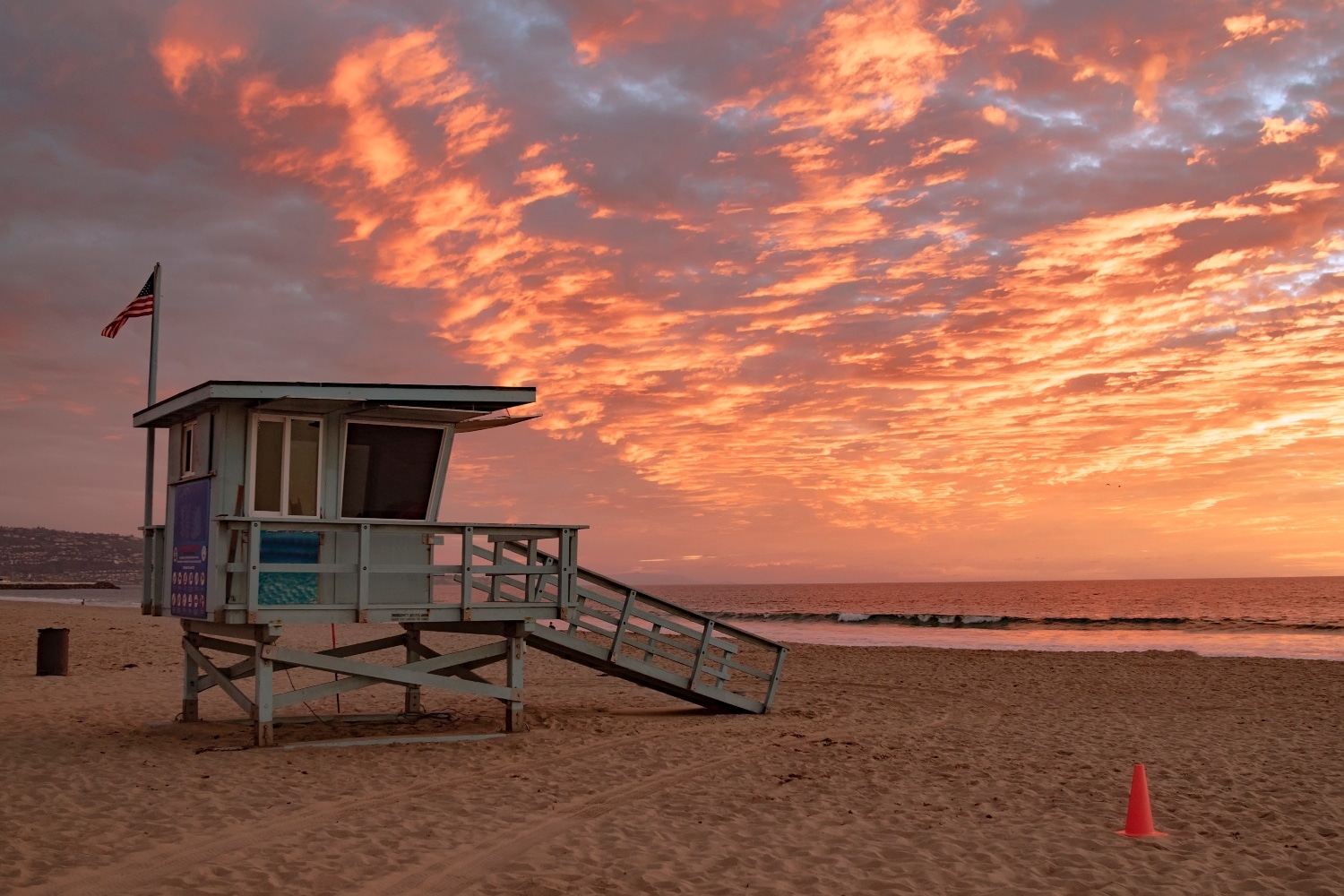Medically Reviewed by: Eric Chaghouri
Entering the dating scene sober introduces a unique set of challenges and opportunities. For those who have chosen sobriety due to recovery, health reasons, or personal preference, dating without the traditional crutch of alcohol or drugs can seem daunting. This article explores the nuances of dating in sobriety and offers practical advice on how to approach sober dating confidently and successfully.
Understanding Sobriety in the Dating World
Sober dating involves engaging in romantic activities without the influence of alcohol or drugs. This mode of dating changes not only the venues and activities chosen but also deeply affects interpersonal dynamics, making interactions potentially more honest and intimate.
A prevalent misconception is that dates without alcohol are less fun, or that sober individuals are less interesting. These ideas stem from a cultural misunderstanding that equates social ease with drinking. Challenging these misconceptions opens up a broader understanding of the enriching experiences sober dating can offer.
Dating During the First Year of Sobriety
The first year of sobriety is a pivotal period full of growth, self-discovery, and, often, significant challenges. Venturing into the dating world while recovering from drug or alcohol addiction requires careful consideration and a strong sense of self-awareness. Understanding the unique dynamics of dating during this delicate time can help individuals navigate these waters more successfully and healthily.
Assessing Readiness for Dating
Before stepping into the dating scene, it’s crucial for individuals in their first year of sobriety to assess their emotional and mental readiness. This early stage of recovery often involves significant personal upheaval and growth, as individuals learn to live without substances and often re-evaluate their relationships and life choices. It’s important to feel stable and somewhat comfortable in one’s new sober lifestyle before introducing the complexities of a romantic relationship.
Potential Risks and Challenges
Dating during the first year of recovery can introduce several risks. Emotional vulnerability is heightened during early sobriety, and romantic relationships can bring intense emotions that might be difficult to manage. Additionally, the stress of navigating new relationships could potentially trigger the desire to use substances as a coping mechanism. Recognizing these risks can help individuals make more informed decisions about when and how to date.
Taking Relationships Slowly
During the first year of sobriety, it’s advisable to take romantic relationships slowly. Rushing into emotional commitments can complicate or jeopardize recovery efforts. Gradual and thoughtful progression in relationships allows individuals to gauge compatibility and the potential impact on their sobriety while prioritizing their alcohol and drug addiction recovery process.
The Impact of Sobriety on Social Interactions
Navigating traditional dating venues like bars or parties can be challenging for sober individuals. The emphasis on alcohol use in these settings can feel alienating and may necessitate a reevaluation of where to spend time on dates. It becomes important to seek out alternative venues that align more closely with sober lifestyles, such as daytime events, cultural activities, or outdoor excursions, which support genuine interactions without the presence of alcohol.
Building Confidence in Sobriety
Embracing sobriety fully means accepting and taking pride in one’s journey and the personal growth that comes with it. This acceptance is a powerful foundation for building self-confidence. It involves recognizing the strength it takes to maintain a sober lifestyle and seeing this as a significant achievement that adds to one’s character.
Developing New Interests and Skills
Engaging in new hobbies and activities not only fills the time previously occupied by drinking or using drugs but also helps in developing new skills and interests that can boost self-confidence. Whether it’s learning a musical instrument, practicing a new sport, or engaging in creative arts, each new skill enhances self-esteem and provides new topics of conversation and connection when meeting new people.
The Role of Appearance and Self-Care
Taking care of one’s physical appearance and health can significantly boost confidence. For those in living a sober life, this often means having more energy and a healthier appearance, which are attractive qualities in the dating world. Regular exercise, a balanced diet, and proper sleep can improve physics\al health and appearance, which in turn enhance self-perception and confidence in social and dating scenarios.
Communication and Honesty
Effective communication and honesty form the bedrock of any strong relationship, and they are particularly crucial in the context of sober dating. For those navigating dating while maintaining sobriety, transparency not only helps in forming genuine connections but also sets a foundation of trust and mutual respect.
Prioritizing Open Dialogue
Open communication about one’s sobriety can help prevent misunderstandings and misaligned expectations in dating scenarios. It’s important for sober individuals to articulate their thoughts and feelings clearly and confidently right from the start. Discussing one’s journey with sobriety openly can demystify any preconceived notions and help potential partners understand the significance of this lifestyle choice.
Finding Like-Minded Partners
Finding individuals who share similar values and lifestyles is key to successful sober dating. This can sometimes seem challenging but pursuing the right avenues can increase the likelihood of meeting compatible partners.
Expanding Social Networks
Expanding one’s social network through activities and hobbies that align with sober living can lead to meeting like-minded individuals. Whether it’s joining a sports team, attending a book club, or participating in community service, these activities can open doors to new social circles and potential dating opportunities within a sober context.
Leveraging Sober Communities
Many communities and online platforms cater specifically to sober individuals. Engaging with these groups through social media, forums, and local meetings can provide support and also increase one’s chances of meeting a partner who shares a commitment to sobriety. These platforms often organize group activities and events that provide safe environments for socializing and networking.
Utilizing Dating Technology
With the rise of dating apps and websites, there are numerous opportunities to meet recovering addicts who are also looking for sober relationships. Many modern dating platforms allow users to indicate their lifestyle choices, such as being sober, in their profiles, which helps filter potential matches according to these preferences.
Setting Boundaries in Relationships
Setting and respecting boundaries is a key component of a healthy relationship, especially for those in sobriety and overcoming a substance use disorder. Healthy boundaries help define what is acceptable and what isn’t, protecting one’s emotional and physical well-being.
It’s important for sober individuals to establish clear boundaries around substance use. This might mean asking partners not to drink around them or avoiding certain social settings that could pose a risk to their sobriety. Communicating these boundaries clearly in the relationship helps ensure that both parties are on the same page and can support each other effectively in a healthy way.
Dating in Sobriety within the LGBTQ+ Community
Dating while sober can be uniquely challenging and rewarding, and this is especially true within the LGBTQ+ community. The community often centers social activities around bars and clubs, which can pose specific challenges for those committed to sobriety. However, sober dating within the LGBTQ+ community can also lead to deeply rewarding relationships built on authenticity and mutual respect.
Understanding the Landscape
Bars and nightclubs have historically provided safe spaces for LGBTQ+ individuals to meet and connect, often away from societal judgment. These venues facilitate not just socialization but also a sense of community and belonging. For someone who is sober, navigating these spaces requires a strategic approach to maintain their commitment to sobriety while still engaging with their community.
The Importance of Inclusive Sober Spaces
Creating and finding inclusive sober spaces within the LGBTQ+ community is crucial. This can include LGBTQ+ friendly coffee shops, book clubs, and community events that focus on hobbies and interests that aren’t centered around alcohol. These spaces provide opportunities to meet others who share similar values and lifestyles, which is particularly important for forming supportive relationships.
Challenges Faced
One of the main challenges in sober dating within the LGBTQ+ community is the pervasive presence of substances in social settings, which can lead to feelings of isolation or exclusion. Additionally, the smaller dating pool within the community can make it seem like there are limited options for meeting like-minded sober individuals.
Dealing with Temptation and Social Pressure
Navigating social situations that involve alcohol or drugs is a common challenge for those in sobriety, particularly in the context of dating. Developing strategies to handle these situations can help maintain sobriety and reduce stress.
Before attending social events or dates in potentially challenging environments, planning ahead can be incredibly helpful. This might involve bringing a sober friend for support, preparing responses for offers of drinks, or even planning an exit strategy if the situation becomes uncomfortable.
Having a robust support system or support network to lean on during tough times is invaluable. Regular check-ins with friends, mentors, or support groups who understand the challenges of maintaining sobriety can provide encouragement, practical advice, and healthy coping skills when facing social pressures.
Start Your Journey to Recovery
Sober dating presents unique challenges, but it also offers opportunities for growth and genuine connection. By embracing your recovery journey with confidence and being open about your sober lifestyle, you can forge meaningful relationships that support and enrich your life.
If you or a loved one are struggling with substance abuse, get in touch with No Matter What Recovery. Our outpatient addiction treatment facility in Los Angeles is dedicated to helping individuals overcome the challenges of drug and alcohol abuse. Give us a call to learn more about our sober living and addiction recovery programs and start the recovery process at our treatment center today!
FAQs
Opt for coffee shops, bookstores, or outdoor activities like hiking or visiting a botanical garden. These settings facilitate conversation and shared experiences without the presence of alcohol.
Be honest and firm about your sobriety. If your date insists on drinking despite knowing your lifestyle, it may be a sign that they are not the right match for you.
It’s best to be upfront about your sobriety early in the dating process. This transparency can help set the right expectations and attract people who are supportive of your lifestyle.
Have a plan in place, such as calling a friend or attending a support group meeting. Remind yourself of the reasons you chose sobriety and consider whether the person you’re dating is truly supportive of your goals.

Dr. Eric Chaghouri is our Medical Director at No Matter What Recovery. Since completing his forensic psychiatry fellowship, he has established a successful and thriving practice in Southern California, focusing on treatment of co-occurring psychiatric and addictive disorders.

Dr. Eric Chaghouri is our Medical Director at No Matter What Recovery. Since completing his forensic psychiatry fellowship, he has established a successful and thriving practice in Southern California, focusing on treatment of co-occurring psychiatric and addictive disorders.







